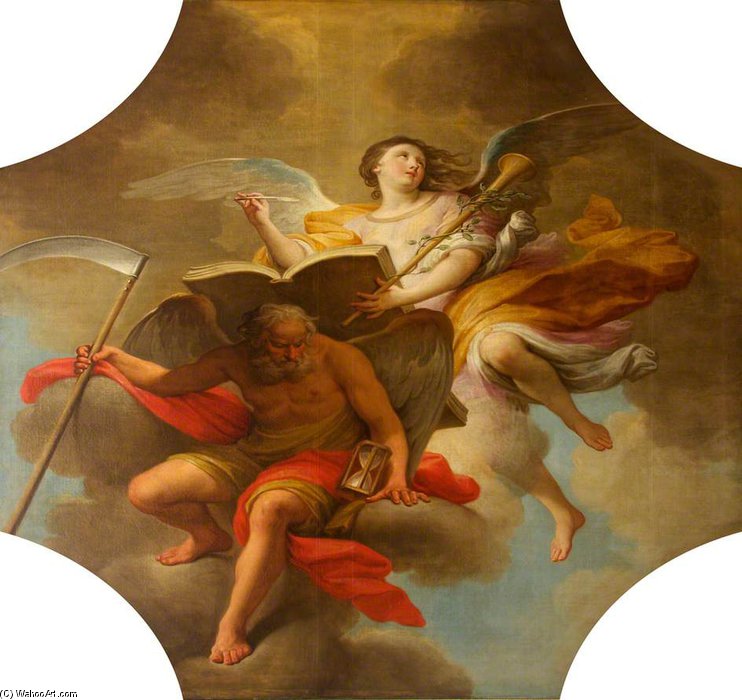EX PRAETERITO PRAESENS PRVDENTER AGIT NI FUTUR- ACTIONE DETVRPET
History is a living thing.
I first saw it come alive in Roz Ashby’s and Ken Meier’s hands. On the first day of Western Civilization I, they handed out a quote and asked us to date it. It was a typical “kids these days” rant, full of complaints about their manners, their dress, and their stunning lack of respect toward their elders. Most of the class guessed it had been written in the 1950s or 60s. Professor Meier revealed, with a delightfully sardonic smile, that we were all wrong. The rant had been delivered by Socrates more than two thousand years ago.
I still have the handout they gave us that day: “The Value of History” by Robin Winks. I’d signed on as a history major because I love the past. I hadn’t, until then, thought of it as something of urgent importance. But the professors’ prank, followed by their impassioned lecture on the vitality and relevance of history and Winks’ case for its value, changed my perception entirely.
History wasn’t just curiosity. It wasn’t simply tradition and heritage, important to preserve for its own sake. It was also essential in order to understand the present, and to navigate the future.
“From the past the man of the present acts prudently so as not to imperil the future,” Titian inscribed on his famous painting. We should chisel that saying into every monument. Those who don’t take the past seriously, who treat history as a trivial handful of facts, interesting stories, and events that have no bearing on today, won’t have the wisdom to create a better future.
“Those who cannot remember the past are doomed to repeat it,” George Santayana wrote in The Life of Reason. Too many of us refuse to listen to that warning. How many times have we weathered a crisis only to discover that we’re repeating prior mistakes? Individuals, organizations, entire nations have rushed themselves over cliffs that others fell from before, when a safe way down had already been discovered.
It’s true that things change, and no situation is exactly the same as another. Some people seem to believe those cosmetic differences mean there’s nothing to learn. And so, mistakes get repeated. Safeguards get torn down because no one seems to remember why they were put in place to begin with. Blinded by the present, looking toward the future, we don’t see what history is trying to show us. We strip away the protections that people made wise by the events of their own day put in place in order to protect the generations to come. We’re seeing the effects of that now, in a myriad of ways: our failed imperial experiment in Iraq, the erosion of our Constitutional rights, the crisis in our banking industry brought on by the repeal of regulations enacted to prevent another Great Depression, the rise of a despot and the fall of a democracy. That was another age, those who disregard history say. Things are different now. We are different. And they plunge in, believing they’re blazing new trails when they’re traveling down well-worn roads.
The past is never truly past. “Great events have incalculable consequences,” Victor Hugo said in The Hunchback of Notre Dame. Some of those consequences echo down through ages. You can’t understand what’s happening now if you don’t understand what happened then. The effects are still being felt. What we do now will impact generations to come. What our ancestors did centuries ago set the conditions for our time.
“This black page in history is not colourfast / will stain the next,” Epica warns in their song “Feint.” We can’t prevent that stain, but history can give us advice on how we might limit its spread.
Some things, perhaps, we’d rather forget. But as Chaim Weizman knew, “you cannot deny your history and begin afresh.” History comes with us, whether we will it or not. Denying it gets us nowhere. Embracing history, knowing it, allows us to accommodate its effects.
History is of great practical value, then. But that’s not the whole of its worth. It offers perspective and proportion. Knowing what others survived gives us hope for a future in dark times. It can put current events in context, just like your old dad giving you the yarn about having to walk to school barefoot in the snow uphill both ways as a kid. I often take comfort from that when the world seems like it’s coming apart at the seams. It has frayed, often torn, before. Not all of us make it. Things get worse before they get better. But we always manage to patch it back up somehow. Civilization has been through hell a thousand thousand times. As long as we avoid following the same paths that led other societies to grimmer outcomes, we’ll probably do just fine. I tell myself that a lot these days, and I have plenty of history to prove it. From history comes hope. Sometimes.
And sometimes, there’s delight in seeing ancient people behaving the same way we do. We tend to get only the broad brushstrokes of history in school. We don’t get the enchanting, everyday bits, the ones that tell us people are people everywhere. Read Socrates griping about the durned kids in ancient Athens, or Abu Nawais looking for his next drink, and you realize that they were people like us. There were fart jokes in the cradle of civilization and risque graffitti in Pompeii. The more you learn of history, the more you realize that the things we consider larger than life arose not from some golden age of supermen, but from mostly ordinary people doing their best to deal with times that were no more or less challenging than now. The best days are indeed behind us – but they are also now, and they are ahead. How much easier it is when we can pick the brains of our ancestors, pluck up their best ideas, and avoid their worst mistakes. It’s practically cheating!
“He who cannot draw on three thousand years is living from hand to mouth,” Goethe once said. When we neglect our history, we risk ourselves. History gives us a chance to live securely. When we can draw on thousands of years of knowledge and experience, we’re no longer condemned.
A version of this post appeared in En Tequila Es Verdad’s past.




I’m always fascinated by how little the human condition really changes – every new technology brings new cries of The Horror! and Humanity’s End!, and every generation somehow manages to pull through.
Every new atrocity is another Never Again, and yet pretty much every generation manages to slide back into that trap…
It’s a little bit funny, isn’t it, at how much work and effort it takes to convince people of (for example) the equality of all human beings; I wonder if we will ever be at that point where a slide back into conservative authoritarianism doesn’t feel a hair’s-breadth away.
Or maybe it’s just the times. Again.